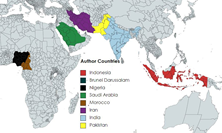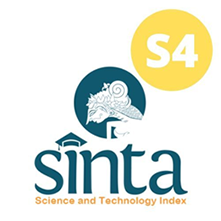Design of Wet Media Digital Thermometer Calibrator Based on ATmega328p
Abstract
Temperature calibration is an activity that formed the relationship between values indicated by a measuring instrument or measuring system with the value - the value relating to the temperature scale that measured under certain conditions. A clinical thermometer is a device that doctors use to measure the temperature inside a patient's body. In the field of calibration, the suitability of medical device readings with the permissible standard values (tolerance values) is very necessary so that the readings are kept accurate. The purpose of this research is to make a digital wet media thermometer calibrator based on the ATmega32p to monitor the performance of the thermometer with a temperature setting of 35 °C – 40 °C in order to maintain its accuracy. The design of this calibrator consists of a wet heater circuit using a DS18B20 temperature sensor which is processed by a minimum ATmega328p system, then will be displayed on a 2x16 LCD. This tool is made to make it easier to calibrate the thermometer so that its accuracy is maintained. Thermometer calibration is done by comparing the module with a calibrated standard measuring instrument. The measurement of the instrument against the setting temperature has the smallest error of 0% and the largest of 0.25%. Meanwhile, the measurement of the instrument against a standard thermometer (which has been calibrated) has the smallest error value of 0% and the largest of -1.17%.

This work is licensed under a Creative Commons Attribution-ShareAlike 4.0 International License.
Authors who publish with this journal agree to the following terms:
- Authors retain copyright and grant the journal right of first publication with the work simultaneously licensed under a Creative Commons Attribution License that allows others to share the work with an acknowledgement of the work's authorship and initial publication in this journal.
- Authors are able to enter into separate, additional contractual arrangements for the non-exclusive distribution of the journal's published version of the work (e.g., post it to an institutional repository or publish it in a book), with an acknowledgement of its initial publication in this journal.
- Authors are permitted and encouraged to post their work online (e.g., in institutional repositories or on their website) prior to and during the submission process, as it can lead to productive exchanges, as well as earlier and greater citation of published work (See The Effect of Open Access).











